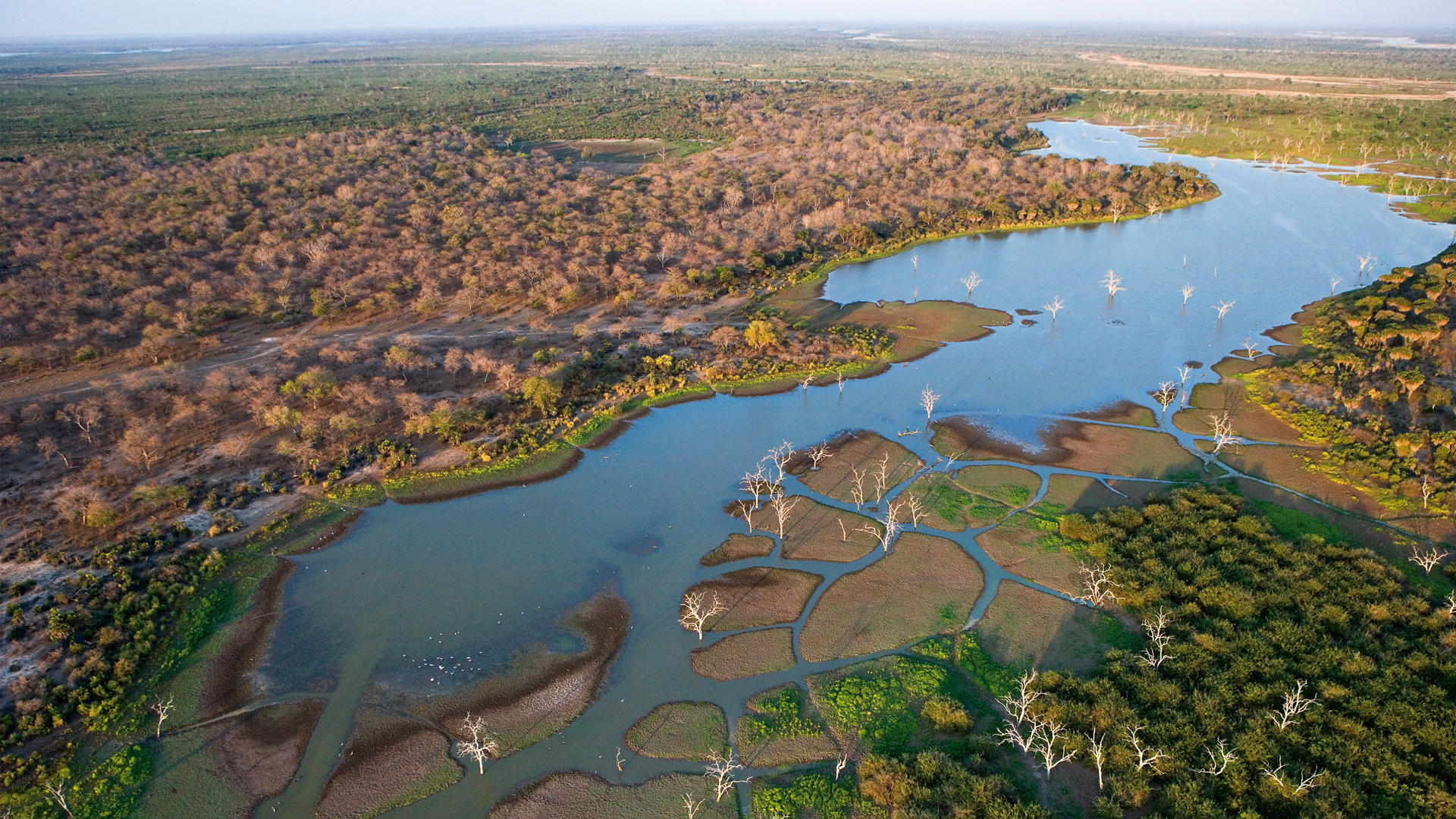
In the arid expanse of the Kalahari Desert, where the harshness of the environment typically prevails, lies a breathtaking anomaly: the Okavango Delta. One of the world’s largest inland deltas, this unique ecosystem defies the norm by transforming a desert landscape into a vibrant, life-sustaining oasis.
Unlike most rivers that eventually find their way to the sea, the Okavango River takes a remarkable detour. Instead of emptying into an ocean, it spreads out across the Kalahari Desert, creating an expansive delta that supports a diverse range of flora and fauna. This inland delta, which covers approximately 15,000 square kilometers, is a testament to the river’s incredible journey and its ability to foster life in an otherwise inhospitable region.
The delta’s annual flooding, which occurs between March and August, plays a crucial role in maintaining its lushness. As the floodwaters spread across the delta, they create a mosaic of lagoons, channels, and floodplains. This seasonal inundation ensures that the delta remains a haven for wildlife throughout the year.
The Okavango Delta is renowned for its remarkable biodiversity. It is home to a plethora of species, including the iconic African hippo, whose large populations thrive in the delta’s waterways. The delta also provides a sanctuary for predators such as lions and leopards, which roam the surrounding savannahs and woodlands in search of prey. The diverse habitats within the delta support numerous other species, from graceful giraffes and elephants to a wide array of bird species, including the endangered wattled crane.
In addition to its ecological significance, the Okavango Delta is a vital resource for local communities. The delta supports traditional fishing practices and provides water for livestock. It also plays a significant role in tourism, attracting visitors from around the world who come to experience its stunning landscapes and rich wildlife. Eco-tourism ventures in the delta are designed to ensure that tourism is sustainable and benefits both the environment and local communities.
Efforts to preserve the Okavango Delta’s unique environment are ongoing. Conservation organizations, along with the Botswana government, are actively working to protect this invaluable ecosystem from threats such as climate change and unsustainable development. These initiatives aim to ensure that the delta continues to thrive as a lush oasis in the heart of the Kalahari for generations to come.
The Okavango Delta stands as a testament to nature’s resilience and the extraordinary beauty that can emerge in the most unlikely places. Its lush landscapes and abundant wildlife make it a vital and awe-inspiring part of Botswana’s natural heritage.
